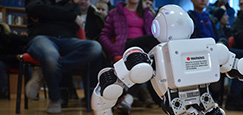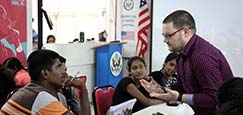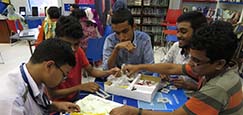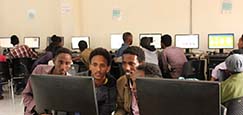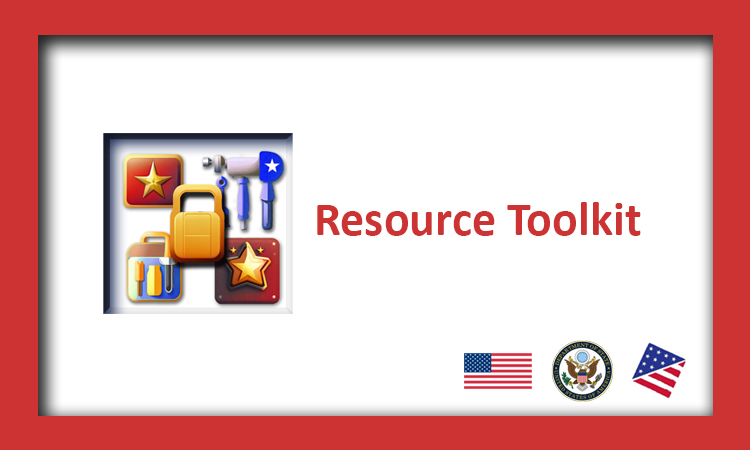TODAY’S YOUTH, TOMORROW’S LEADERS
PROGRAM TOOLKIT FOR AMERICAN SPACES
This Resource Toolkit is designed for programming at American Spaces. The information included here is suggested to help young people develop the skills to become active citizens and leaders in their communities.

LEADERSHIP QUALITIES
- Acting with integrity and self-awareness
- Being a role model
- Making an impact
- Following a vision
- Encouraging collaboration
- Being positive and grateful
- Practicing empathy
- Demonstrating adaptability
RESOURCES
Leadership Compass Self Assessment: This self-assessment worksheet designates 4 types of leaders to deepen appreciation of different work styles. How can people of different leadership styles work together? Is it important for teams to have a variety of leadership styles? Do you think it is useful information to know what weaknesses each leadership style might have?
WHY HAVE A YOUTH LEADERSHIP WORKSHOP?
Youth leadership programs provide young people with the skills to guide and support others while also becoming role models for their peers. The programs offer coaching in ways to develop greater emotional intelligence and self-confidence. Youth empowerment facilitated through such programs encourage young people to learn responsibility and take charge of their own lives. Through youth leadership workshops, young people also hone their skills in making connections.
They gain experience speaking to groups and communicating with their colleagues, as well as practicing active listening. They become comfortable with these interactions despite any differences in race, age, or belief.

To follow up on leadership programs, learn how and why to host an EducationUSA event.

GLOSSARY
Integrity – The quality of being honest and having strong moral principles
Leadership – The ability to guide other members of an organization or a community.
Self-Confidence – An attitude about your skills and abilities. It means you accept and trust yourself and have a sense of control in your life. You know your strengths and weaknesses well and have a positive view of yourself.
Emotional Intelligence – The ability to both manage your own emotions and understand the emotions of others.
Social Skills – The skills we use every day to interact and communicate with others. They include verbal and non- verbal communication, such as speech, gestures, facial expressions, and body language.
YOUTH LEADERSHIP ENGAGEMENT PROGRAMS
For every individual, there is an American Youth program. Take a look at our programs and encourage young women and men to apply:

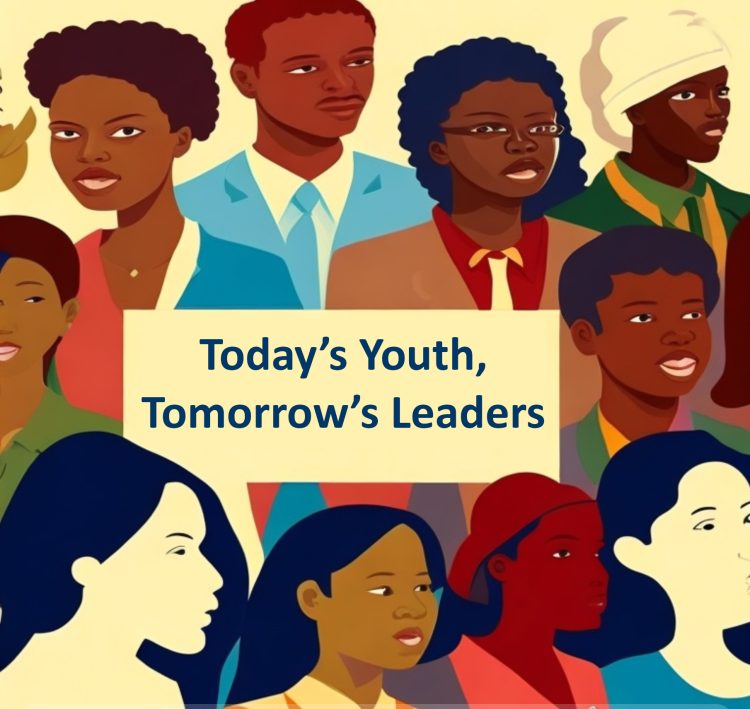
FOR VIEWING
Former President Barack Obama Motivational – 2009 Back to School – Remarks (19 minutes)
In high school, former U.S. President Barack Obama was an unfocused teenager. He grew into a great leader.
TED Talk: 8 Traits of Successful People – Richard St. John
In the above illuminating talk, “average guy” Richard St. John discusses the character traits successful people share.
DISCUSSION QUESTIONS
- What is a “role model?” What are their characteristics? Who is your role model and what have you learned from that person?
- What does leadership or being a leader mean or look like to you? Are there ways in which you can be a leader without being in a leadership role?
- Richard St. John says one of the major keys to success is finding your passion. How do you identify that if you’re not sure what your passion is? What are some of the fields you would like to work in? What should you study or how do you enter this career path?
- Barack Obama went from being a not-very-serious teenager to becoming President of the United States. What advice does the former President give to High School students on how to achieve their goals?
The views expressed in these links and resources do not necessarily reflect those of the U.S. government.
Updated May 2024





